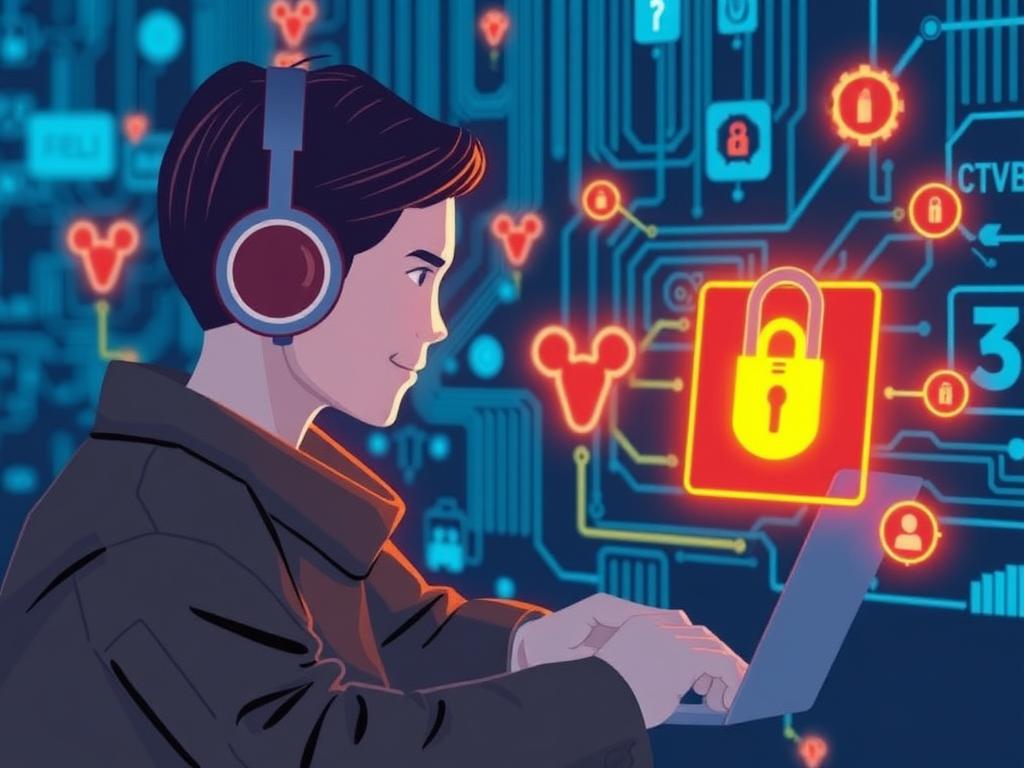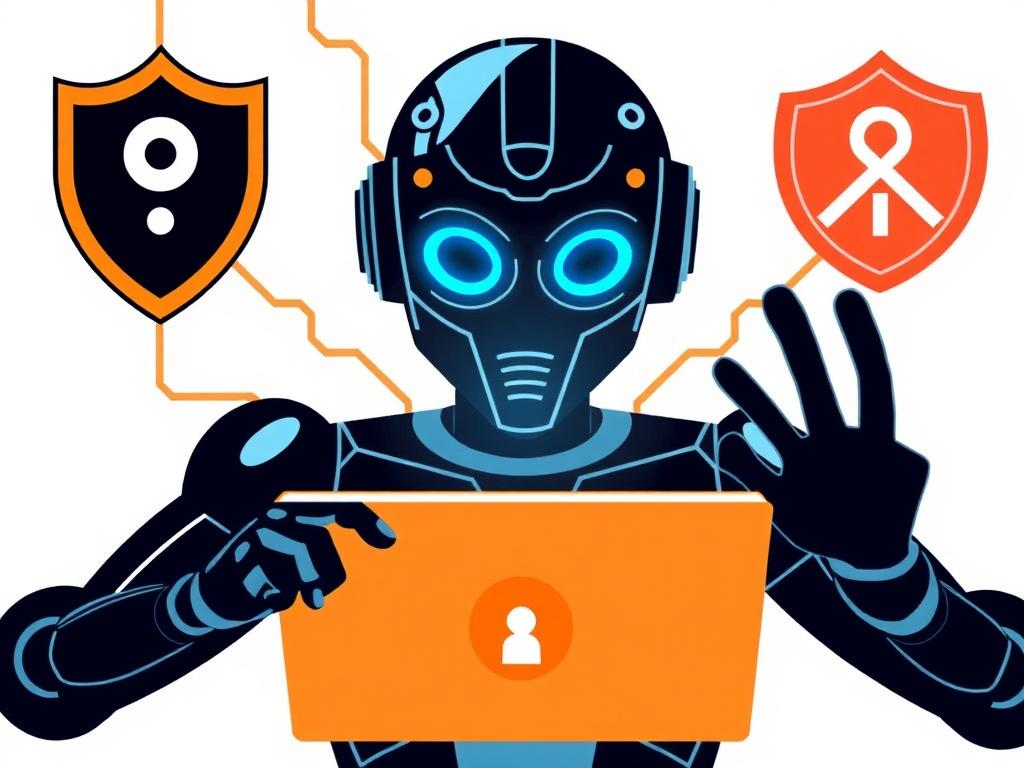Virtual Private Networks (VPNs) have become an essential tool for millions around the world, ensuring online privacy, bypassing geo-restrictions, and providing secure access to the internet. As technology advances at a breathtaking pace, the intersection of Artificial Intelligence (AI) and VPN technology promises to bring thrilling innovations that could transform how we stay safe and anonymous online. Imagine VPNs that not only shield your internet connection but actively learn and adapt to emerging threats, optimize connections effortlessly, and detect anomalies in real-time. In this article, we’ll delve into how AI could change VPN technology in ways that make them smarter, faster, and more secure than ever before.
The Current State of VPNs and Their Limitations
Before we explore AI’s potential role, it’s important to understand what current VPN technology looks like and what challenges it faces. Today’s VPN services typically work by routing your internet traffic through encrypted tunnels to servers located worldwide. This makes it difficult for hackers or surveillance entities to track your real IP address or intercept your data. However, despite the encryption, VPNs are not infallible. Users can still face issues such as slow connection speeds, occasional leaks of traffic data, and vulnerability to sophisticated cyberattacks. Additionally, many VPNs lack the ability to dynamically adapt to changing network environments or identify subtle threats that might compromise security.
Common Limitations of Current VPNs
- Fixed encryption protocols that may become outdated
- Manual server selection affecting user experience
- Potential exposure to DNS and IP leaks under certain conditions
- Overloaded servers resulting in slow connections
- Limited real-time threat detection and response capabilities
How AI Can Enhance VPN Security and Performance
Artificial Intelligence, particularly machine learning and neural networks, has shown incredible promise in cybersecurity. AI algorithms can analyze enormous volumes of data quickly and adapt to emerging threats by recognizing patterns indicative of malicious behavior. When integrated with VPN technology, this ability could unlock a new era of online protection.
AI-Powered Threat Detection
VPNs integrated with AI could actively monitor connection traffic for signs of suspicious activity such as man-in-the-middle attacks, DNS spoofing, or intrusion attempts. For example, an AI system could detect subtle anomalies like traffic requests deviating from usual patterns or irregular server responses that typically signal an ongoing cyberattack. These systems wouldn’t simply wait for a known threat signature but could identify zero-day exploits by analyzing network behavior in real time.
Dynamic Adaptive Encryption
Current VPNs often rely on static encryption protocols, which, although robust, may not adapt quickly to new vulnerabilities exposed by hackers. AI could oversee encryption protocols dynamically, adjusting algorithm strength and methods based on the threat landscape. This flexibility would help maintain top-tier security without compromising connection speed.
Smart Server Selection and Load Balancing
Choosing the best VPN server for optimal speed and minimal latency is often a guessing game — many users must manually select servers or trust automatic systems without transparency. AI systems could analyze multiple factors such as current server loads, network congestion, user location, and even predicted traffic surges to select the best possible server in real time. The result? Faster, more stable VPN connections without the usual guesswork or trial and error.
| Feature | Traditional VPN | AI-Enhanced VPN |
|---|---|---|
| Threat Detection | Signature-based, reactive | Proactive, anomaly detection |
| Encryption | Static protocols | Dynamic, adaptive encryption |
| Server Selection | User choice or static algorithms | Real-time smart selection with AI |
| Connection Speed | Variable based on server load | Optimized via predictive load balancing |
The Role of AI in User Privacy and Data Transparency
Beyond the core technology, how AI could improve user experience and trust deserves equal attention. Many VPN users are understandably concerned about privacy policies and data handling by VPN providers. AI can assist in automating transparency features, such as providing real-time insights into what data is being encrypted, anonymized, or possibly vulnerable. Additionally, AI-driven privacy assistants could help users configure their VPN settings according to their unique online behaviors and security preferences, striking a balance between privacy, convenience, and performance.
Personalized VPN Experiences

Different users have varied needs: some prioritize speed for streaming, others require high-level security for sensitive transactions, and a few want to bypass geographic restrictions with ease. AI can analyze user habits and preferences to customize VPN protocols, server choices, and encryption levels accordingly. This ensures the VPN experience is tailored, intuitive, and efficient.
Automated Compliance and Regulation Adherence
As privacy laws such as GDPR and CCPA evolve, VPN providers face increasing pressure to ensure they comply with regulations worldwide. AI assistants could help automate these compliance tasks by monitoring data flows and alerting providers to potential breaches or non-compliance events, thereby protecting both the provider and the user.
Challenges and Considerations of Integrating AI with VPNs
While the promise of AI-enhanced VPNs is thrilling, this union also comes with challenges that need careful consideration. First and foremost is the concern of AI models themselves processing or accessing sensitive user data. Trust must be established that AI systems within VPNs operate ethically and transparently without risking user privacy. Additionally, training AI models to understand the vast complexity of internet traffic without false positives or performance hits is no small feat.
Another challenge is the increased computational power and energy consumption AI processes can demand. VPN providers must balance improved functionality with efficiency to keep solutions cost-effective and widespread.
Potential Risks

- Data privacy concerns with AI data processing
- False positives causing unnecessary VPN disconnections
- Implementation complexity leading to bugs or security loopholes
- Resource consumption impacting device battery life
Looking Ahead: The Future of AI in VPN Technology
As AI continues to mature, its fusion with VPN technology will likely reshape how we think about internet security and privacy altogether. We can expect VPNs that feel more like personal security advisors — constantly learning from users’ behavior, the broader threat environment, and changing network conditions. This future will also feature VPNs capable of defending against increasingly sophisticated cyber threats while maintaining seamless user experiences.
Emerging Trends to Watch
- Integration of AI with decentralized VPNs (dVPNs) for trustless architectures
- Real-time AI-powered threat intelligence sharing among VPN providers
- Enhanced biometric authentication combined with AI for fortified login
- Increased use of AI chatbots for customer support and rapid troubleshooting
Frequently Asked Questions About AI and VPNs
| Question | Answer |
|---|---|
| Will AI slow down my VPN connection? | Though AI requires processing power, properly optimized AI-enhanced VPNs aim to improve speed and connection stability through smart resource management. |
| Is my data safe with AI handling VPN security? | Reputable VPN providers ensure AI systems respect privacy by processing data anonymously and only using metadata needed for security. |
| Can AI detect new cyber threats faster than traditional VPNs? | Yes, AI’s real-time anomaly detection can identify emerging threats that conventional signature-based systems might miss. |
Conclusion
The integration of AI into VPN technology represents a thrilling frontier in the quest for online privacy and security. By enabling smarter threat detection, adaptive encryption, and personalized user experiences, AI-powered VPNs promise to overcome many existing pain points of traditional services. While challenges around privacy, trust, and resource demands remain, ongoing innovation and responsible implementation could soon deliver VPNs that are not just tools but intelligent guardians of our digital lives. As cyber threats grow more sophisticated and online activities continue to expand, AI’s role in VPN technology may well become indispensable, opening up a safer, faster, and more private internet experience for users worldwide.
